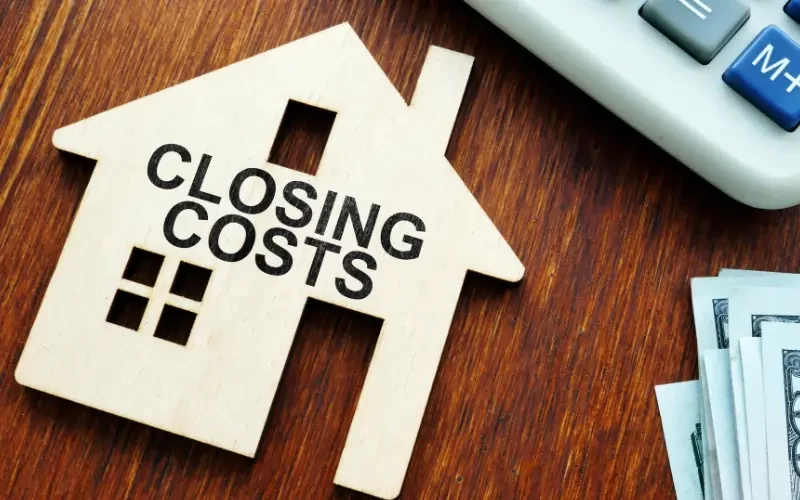
We get it – selling your home is stressful enough without trying to figure out all the fees and costs that come with it. If you need to sell your house fast in Columbus, GA, or anywhere else in Georgia, we want to help you understand what you’re facing so there are no surprises down the road.
Here’s the thing: closing costs can feel overwhelming, but they don’t have to be a mystery. We’ve helped countless homeowners navigate this process, and we know that once you understand what’s coming, you can plan better and make smarter decisions. Whether you’re dealing with financial pressure, an inherited property, or just want to move on with your life quickly, we’re here to break it all down in plain English.
Quick Snapshot — Typical Seller Closing Costs in Georgia
Let’s start with the big picture. In Georgia, we typically see sellers pay anywhere from 6% to 10% of their home’s value in closing costs. So if your house is worth $200,000, you’re looking at roughly $12,000 to $20,000 in total expenses. We know that sounds like a lot, but understanding these average closing costs helps you plan ahead.
The biggest chunk usually goes to real estate agent fees – that’s often around 5% to 6% of your purchase price right there. Then you’ve got various other fees for paperwork, taxes, and services needed to get the deal done. The exact amount varies depending on your home’s value, what you owe on your mortgage, and how you choose to sell.
We always tell people to get these numbers up front because it helps you figure out what you’ll actually walk away with. That’s especially important when you’re counting on those proceeds for your next step in life.
Major Seller Fees: Commissions, Title & Transfer Taxes
The three biggest expenses we see are real estate agent fees, title costs, and transfer taxes. These make up most of the closing costs for sellers, so let’s talk about each one.
Real estate agent fees are usually the largest expense, and here’s what many people don’t realize: as the seller, you typically pay for both your agent and the buyer’s agent. The buyer’s agent commission comes out of your pocket, too. On a $300,000 house, that total commission could easily be $18,000 or more. That’s why we buy houses in Fortson and similar areas – to help homeowners avoid these hefty fees.
Transfer taxes in Georgia aren’t as bad as some other states, thankfully. Most counties charge around $1 for every $1,000 of your sale price, though some areas have additional local fees. You’ll also need to pay property taxes up to your closing date, which gets calculated as part of your total closing costs.
Title costs protect everyone involved in the real estate transaction from legal problems down the road. While they might feel like just another expense, they’re actually important protection for both buyers and sellers.
Title Insurance, Title Search & Recording Fees
We always explain title insurance this way: it protects against problems with your property’s ownership history that nobody knew about. There are two types – one that protects the buyer (which you usually pay for) and one that protects the mortgage company.
The title search is when they dig through public records to make sure there aren’t any hidden problems with your property. This includes checking for unpaid bills, boundary disputes, or other issues that could mess up your sale. These fees usually run a few hundred dollars, but they’re essential for a smooth closing.
Recording fees cover filing all the paperwork with the local government. These are small compared to other costs – usually $25 to $50 per document – but they’re still part of what you’ll pay.
Prorations, Mortgage Payoffs & Outstanding Liens
When we help people sell their homes, we have to settle several financial obligations. Let’s talk about the most common closing costs in this category.
Property taxes get split up between you and the buyer based on the closing date. If you pay property taxes annually and you’ve already paid for the whole year, you might actually get some money back. If you haven’t paid yet, you’ll owe your portion at closing.
Your mortgage has to be completely paid off when you sell. This includes not just what you originally borrowed, but all the interest that’s built up to the closing date. If you have private mortgage insurance, that gets settled, too.
Outstanding liens are probably the trickiest part we deal with. These could be contractor bills, tax debts, or other money owed that’s attached to your property. All of these have to be cleared before you can transfer ownership. This is where cash home buyers in Opelika, AL, and companies like ours really help, because we have experience handling complicated lien situations.
If you’re wondering how long a house closing takes, dealing with these financial obligations is often what takes the most time in traditional sales.

How Closing Costs Impact Your Net Proceeds (Simple Calculator)
Here’s what we tell everyone: you need to know what you’ll actually walk away with, not just what your house might sell for. Let’s do some simple math.
Take your home’s sale price, subtract what you owe on your mortgage, then subtract all your closing costs. For example, if your home sells for $250,000, you owe $150,000 on your mortgage loan, and your closing costs total $20,000, you’ll get $80,000.
This calculation is crucial because it helps you decide if selling makes sense for your situation. If closing costs are eating up most of your money, you might want to look at alternatives. That’s where the benefits of a cash offer really show up – lower costs and faster processing usually mean more money in your pocket.
We always remind people that how long it takes to sell a house affects these numbers, too. The longer it takes, the more you might spend on mortgage payments, utilities, and maintenance while you wait.
Ways Sellers Can Lower Closing Costs (Negotiation, Cash Sale, Credits)
The good news is you’re not stuck paying every fee at full price. We’ve seen sellers successfully reduce their costs in several ways.
First, you can negotiate with service providers. Some attorney fees, appraisal fees, and even escrow fees might have wiggle room, especially with local companies that want to keep doing business in the area.
Cash sales eliminate many traditional costs completely. You won’t pay real estate agent commissions, and many buyers’ closing costs disappear because there’s no mortgage involved. No loan origination fee, no funding fee, no loan estimate needed – it’s much simpler.
Sometimes buyers will cover some of your costs in exchange for other considerations. While this doesn’t eliminate the expenses, it can shift who pays them, which might work better for your situation.
The key is understanding that these costs vary depending on how you choose to sell and who you work with.
Special Situations: Probate, Foreclosure, As-Is & Damaged Homes
Some situations make the closing process more complicated and potentially more expensive. We work with people in these situations all the time, so we understand the extra challenges.
Probate properties often have additional legal requirements and court fees. These can add to your total closing costs, but they’re necessary for legally transferring ownership.
If you’re facing foreclosure, time is critical. Traditional sales might not be fast enough, which is why learning how our home buying process works at Assured Property Solutions can be so valuable. We specialize in helping people avoid foreclosure while minimizing their losses.
Selling a damaged home or as-is property through traditional channels means you’ll still pay full closing costs while potentially accepting a lower price. Many sellers find that working with experienced cash buyers gives them better results overall.
Properties with complications like title issues or structural problems might need additional legal work, which increases your costs. Having experienced help can prevent these surprises from derailing your sale.
Timing & Documents — What to Expect at Closing
Traditional sales usually take 30 to 45 days to close, though this can change based on financing and inspections. You’ll need to gather important documents like mortgage statements, property tax records, homeowners’ insurance information, and utility bills.
Your closing date gets scheduled once all the inspections are done and the buyer’s financing is approved. For FHA loans or VA loans, this process might take longer because of additional requirements.
Most closings in Georgia happen at an attorney’s office or escrow company. You’ll spend an hour or two reviewing and signing documents, including the deed transfer and settlement statement that shows every cost and payment.
We always tell people to review everything carefully. If something doesn’t match what you expected, it’s better to address it before signing than to be stuck with unexpected costs.
Next Steps: Get an Itemized Estimate and Compare Cash Offers
Before you make any decisions, get a detailed breakdown of all your expected costs. A good estimate should include every fee – from the biggest closing costs like commissions down to smaller items like HOA fees and recording costs.
If you’re looking at different selling options, compare the total costs side by side. Traditional sales have one cost structure, while cash sales have another. Make sure you understand what buyers and sellers are each responsible for in different scenarios.
Don’t forget to think about the time and stress costs, too. Some approaches might save money but require months of showings and uncertainty. Others might cost a bit more but give you certainty and peace of mind that’s worth the difference.
We always recommend getting multiple perspectives. Whether you’re dealing with time pressure, money problems, or just want the easiest path forward, understanding all your options helps you avoid costly mistakes.
Getting quotes from different types of buyers – traditional agents, cash buyers, and companies like Assured Property Solutions– helps you see the real differences in cost and timeline.

Frequently Asked Questions About Seller Closing Costs
We know you have questions about what you’ll actually have to pay upfront when selling your home. Whether you’re worried about mortgage closing costs, property taxes paid, or additional fees based on your loan amount, we want to give you straight answers so you know what to expect to pay.
Q: How are closing costs determined for a seller?
A: Your closing fees depend on your home’s sale price and loan balance. Many administrative costs are percentages of your sale price. Prorated property taxes and upfront expenses get added to the total. Each real estate transaction is different, but these are the main factors we look at.
Q: Why would a seller not want to pay closing costs?
A: We get it – these costs eat into your money when you’re already stressed about selling. In a buyer’s market, you might feel like you’re paying too much on top of accepting a lower price. If you need every dollar from your sale, these upfront expenses can be really tough to handle.
Q: What is the benefit of the seller paying closing costs?
A: Paying closing costs makes your home more attractive to buyers who need help with their down payment. It can help you sell faster and sometimes get a higher price overall. We’ve seen it make the difference between a quick sale and sitting on the market for months.
Q: How likely is a seller to pay closing costs?
A: When home sellers work with us at Assured Property Solutions, they don’t have to pay any closing costs – we cover everything. In traditional sales, about half the sellers end up paying at least some costs to get their house sold.
Q: What is typically included in closing costs?
A: Typical closing costs include agent commissions, owner’s title insurance, lender’s title insurance, title search fees, and inspection fees. You’ll also see administrative costs for paperwork and escrow fund fees. Each flat fee service adds up, but these are the most common ones.
Q: What is typically the seller’s largest closing cost?
A: Real estate agent commissions are by far the biggest expense – usually 5% to 6% of your sale price. On a $200,000 home, that’s $10,000 to $12,000. After that, mortgage payoff costs can be significant if you have a large loan balance.
Q: Can you sell your house without paying closing costs?
A: You can’t avoid all costs, but you can minimize them. Working with cash buyers is the closest thing to selling without closing costs – they cover most typical expenses. Some buyers will pay your closing costs through seller concessions, or you can negotiate the price to cover them.
Conclusion
Selling your home in Georgia involves various costs, but knowing what to expect helps you plan better and avoid nasty surprises. From agent commissions to title fees and transfer taxes, these expenses can add up quickly, but you have more control than you might think.
Remember that you have options for managing these most common closing costs. Through negotiation, choosing different selling methods, or working with experienced cash buyers, you don’t have to accept every expense at face value. The most important thing is understanding what you’ll actually receive so you can make good decisions about your future.
If you’re feeling overwhelmed or dealing with tough situations like foreclosure, liens, or property damage, we want you to know that help is available. We specialize in situations that traditional selling methods can’t handle well. When you’re ready to explore your options and see how we can help, get a cash offer today and discover how a different approach might work better for your specific needs.
Taking action now usually leads to better outcomes and less stress. Your home sale should help you move forward with your life, not create more problems, and understanding these costs is your first step toward making that happen.
